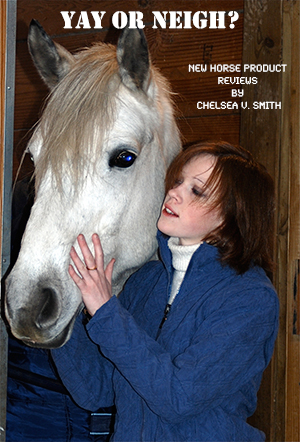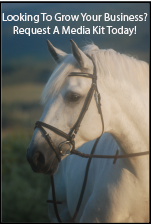Jump Into Spring ~ Barn and Farm Tidy Up
Article Courtesy of Horizon Structures ~ Your One Stop Shop For Horse Housing
By Nikki Alvin-Smith

Were you naughty last Fall? Did you overlook the barn cleaning? Never mind. I think many of us had great intentions but didn’t quite follow through our entire ‘to do’ list. I know I didn’t. The weather just became too cold too early, and powerwashing stall walls seemed a task too chilly to contemplate.
Now Spring is just around the corner and it’s time to get ready for the better weather with a spruce up of your barn and farm. When you keep your barn clean and tidy, it improves hygiene and thus the health of your horse, and makes the environment safer with improved protection from fire risks and less chance of injury from misplaced objects. It also saves time as everything will be in its place and handy for use when you need it.
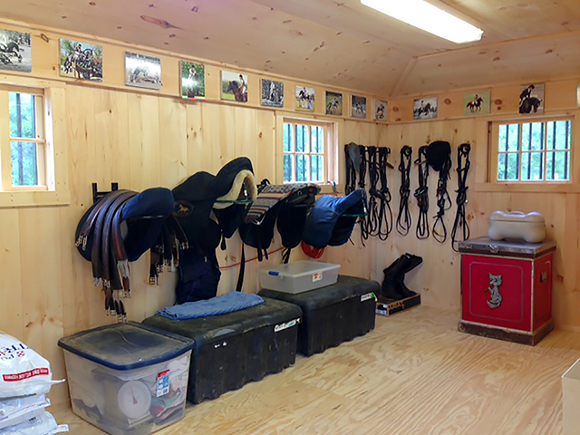
The Shedding Season
If your horses have not been clipped it’s likely you have plenty of hairy blankets to deal with and before you take them to the laundry its smart to take a brush and remove the bulk of the hair on their interior surface. If you have a horse vacuum with a brush attachment this can be a helpful device to remove hair from both horse and blanket.
Remember if you wash blankets now and send ones for repair that require it, you’ll be able to properly store them for next season and can make any necessary replacement purchases during the summer, when the prices are lowest. For turnout blankets don’t use softeners or hot water on the wash cycles as these may destroy their waterproof protection.
If your blankets are older and you need to wash in some extra waterproofing, consult the blanket manufacturer for product recommendations. Personally I have used Nikwax products with much success.
Tanks, Troughs and Feedbins
Remove water heaters and heater plugs from water troughs, wrap up power cords and check each one carefully for damage before storage. Power cords may have been run over by tractors and equipment, caught underfoot a shod hoof or chewed through by vermin, so a careful check along the line can avoid issues the GFI’s tripping next year. While you may be tempted to just wrap ‘injuries’ to the cable with electrical tape, it is much safer to replace them particularly is they run anywhere inside a building.
Turnout the water troughs and give them a powerwash or a good scrub. If using a powerwash machine be careful that it has not been previously used with any cleaning chemicals that might be toxic to horses. It is always a good idea to flush the washer with pure water before use.
Hopefully you clean out grain bins each time you restock, and rotate grain so that old grain does not sit on the bottom. If that hasn’t been viable, Spring is a good time to give feed bins a thorough clean out. It is best not to use water, as this can leave behind moisture particularly in the corners and in the seams of a grain bin and cause grain to mold. A commercial vacuum is the best option for the task or it can be done with a dustpan and brush.
Bug Season and Hot Weather
Check all your screens and windows to see if any repairs are needed. Clean windows and walls of cobwebs and pay attention in particular to cobwebs around and on light fixtures. These should be removed to prevent the possibility of fire. Cleaning windows will not only make the stall brighter, it will also make them smoother to operate. For difficult access corners of windows that have accumulated the inevitable dead fly detritus I use an old screwdriver to pull out the gunk and then vacuum it away. If you are using a vacuum in the stall, make sure all flammable bedding is removed from the space to avoid risk of an errant spark causing a fire.
Now is also a great time to check outside the windows and eves of the building for old wasp or hornet nests and remove them before new residents arrive. If you have a wooden building that is subject to damage from carpenter bees, consider buying an inexpensive Amish bee trap. Eco-friendly and highly effective, these traps can save unsightly damage to the structure and help maintain its integrity. Many horses dislike the large buzzing noise the carpenter bees make, and their presence in a barn can be disturbing to their peace of mind. Bear in mind carpenter bees are not the same as honey bees so you are not harming the eco-system by removing them.
If you plan to add fans for the summer ensure that they are commercial standard and that the motors are fully enclosed. Household window fans are a common cause of fire as the motors collect dust and can catch fire when hot. Obviously all electrical cords should be out of the reach of the inquiring snoot of your horse.
Hay and Bedding
Check your hay and bedding supplies and restock. Hay stalls should be swept clean before new hay is added to keep dust and mold/moisture to a minimum. If you use pallets pull them out and clean the floor below to remove vermin nests and droppings. A commercial vacuum is once again a great tool for this task. I use a wet/dry vacuum where I can change the filter from wet to dry and use to vacuum out excess water that puddles on rubber mats when I wash down the aisle, as it has no drains.
Tidy Up
It can be very therapeutic to clean out the closets and cupboards and discard unwanted, unused items. Tack that has been sitting around can be recycled and sold online, and can provide a bit of extra cash or can be donated to rescues and 4H programs.
Go through your emergency medical kit and replace anything that is out of stock. Check the dates on all wormers and meds and make sure everything is in date. Many vet offices have online pharmacies and are happy to help you restock so that emergency supplies are on hand for use under their direction as needed. Hopefully in the not too distant future, all vet practices will have a telehealth option for horse owners so we can manage minor issues that require no vet visit ourselves. See our article on this topic in this issue of Catskill Horse.
Make sure you have a functioning fire extinguisher at every entrance to the barn. Your local fire department is a great resource, so don’t be shy to ask them about certifications. Check door latches are operating smoothly and that entrance doors move freely and are not blocked by supplies. While hopefully you and your horses won’t need to exit the barn quickly it is important to be prepared. For commercial businesses make certain the exit signs are working properly, and replace bulbs as needed.
Clean out tack boxes and ready them for the forthcoming season.
It’s a good idea to clear the aisleway of unnecessary clutter to help avoid injury to horse or human or damage to the object.
Mend Gates and Fences
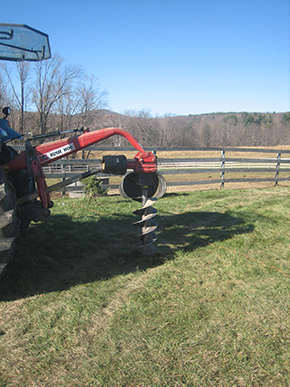 Horses are very good at wriggling their noses through fences to graze the lush grass outside the paddock especially in Spring, when inevitably the grass literally is greener on the other side of the fence.
Horses are very good at wriggling their noses through fences to graze the lush grass outside the paddock especially in Spring, when inevitably the grass literally is greener on the other side of the fence.
A quick walk around the fence line to check for loose nails, broken boards or lagging electric wire is a good idea to minimize the risk of injury to your horse and to keep them safely inside the paddock.
Take a walk over pasture to ensure no foreign objects or large rocks have popped to the soil surface during winter freeze/thaw months, and check for any other hazards that may have blown into the field such as plastic bags and been buried from view under the snow. Over the years I have been amazed at the things I have found. Old plastic syringes for mastitis, deflated balloons that have blown in and been hidden under the snowcover, as well as the normal litter of rocks that have risen to the surface. We always do a rock pick up on our farm every year. Well I say we, actually hubbie does most of that. It is good to get ahead of it before mowing out the paddock though and can diminish the risk of injury to the horse when Spring fever hits and they begin galloping about.
For safety all gates should be easy to operate. Bent gates/latches/chains/handles may need to be replaced. It is so easy for a horse to hit its hip going in and out of a gate so being able to easily widen the gate enough that it has room to turn and move is essential. If you have electric fence attached to the inside of wood boards, be sure the fixtures for the gate handle don’t protrude into the entryway as these can catch on the horse and also very annoyingly rip a blanket. Horses usually take care of themselves but the blanket is an extra layer they don’t account for when moving through the gate.
Spring brings with it mud season, so if your gateways tend to mud up consider spreading stonedust on high traffic areas while the ground is not too soft.
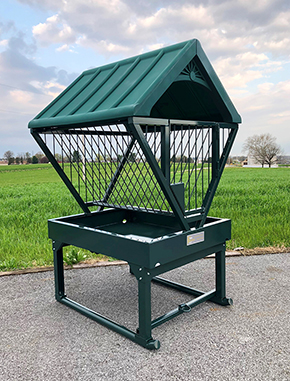 If you use a hay feeder now is a good time to clean out the tray and/or bottom of the feeder. Hay that has sat on the metal and been subjected to moisture can rot and mold. Removing it regularly will also improve the longevity of the metal finish.
If you use a hay feeder now is a good time to clean out the tray and/or bottom of the feeder. Hay that has sat on the metal and been subjected to moisture can rot and mold. Removing it regularly will also improve the longevity of the metal finish.
Hay feeders are portable so if the winter gathering of horses has caused damage to the soil or the stonedust pad beneath it has worn through to the subsoil, consider moving it to a fresh spot and repairing the pad. There is no point in adding stone products to wet mud so it is best to make those repairs before mud season hits.
If you have run-in sheds now is the perfect time to get them cleaned out, before the pesky fly season arrives. Check them for old wasp/hornet nests and remove them.
Get Ready For Equine Spa Time
If you don’t have a designated wash stall it’s time to get those hoses ready for action. If you are lucky enough to have a designated wash stall then time to turn on the water and check for leaks that may have occurred during winter freeze due to retained water in the system.
Stock up on your shampoo and conditioners, linaments and fly sprays. Remember to purchase shampoo that is pH balanced for the horse as opposed to humans, as there is a difference and the right pH will not dry the horse’s skin.
Tack and Equipment
Hopefully your tack and equipment is all clean and ready to go. Now is a good time to test fit your saddle especially if your horse has been off work all winter, or if it is at a high growth rate age.
Trailers and Travel
Make sure your horse is up to date on vaccinations and paperwork if you plan to show this year. Round up those show dates and set a schedule. Don’t forget to have your trailer and towing vehicle up to date on their inspections and a routine maintenance check/service should be done on both. Check that your insurance is up to date and active, especially if you suspend trailer insurance during winter months.
Now you are all set to enjoy the Spring riding season.
Happy Riding!
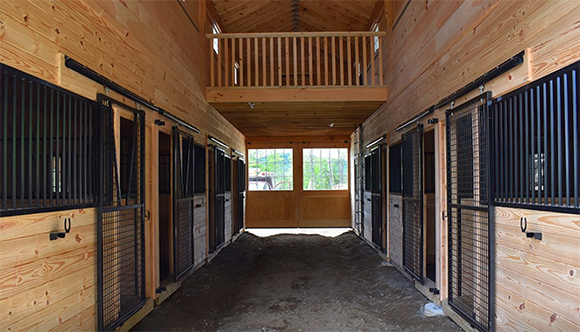
This article is brought to you courtesy of Horizon Structures Inc., Atglen PA – Modular horse barn specialists. Horizon Structures also offers both residential and commercial kennels, coops, multi-use structures and playsets. Please visit https://www.HorizonStructures.com to learn more.

